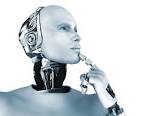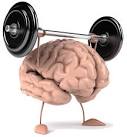 When I was a teenager, I dislocated my patella (kneecap). It didn’t heal well. Later I had surgery on it (big mistake in this case!). That healed even worse, which led to more surgery. Each time, it had a harder time healing than the time before. Finally, we decided to leave well enough alone. Later in life, my knee degenerated, not from the initial injury but from the surgeries. My patella was scraping on my tibia. I reasoned that orthopedic surgery has come a long way in the last 30 years. Surely they know what they’re doing by now (at least better, which they do to a certain extent). So I agreed to a partial knee replacement. They basically replaced part of my patella and part of my tibia, the parts that rub together, with metal pieces lined with plastic. That was six years ago. Now my knee is starting to squeak like an old door hinge that needs WD-40. Something is breaking down or scar tissue is getting in the joint. They can’t tell without doing some arthroscopic surgery.
When I was a teenager, I dislocated my patella (kneecap). It didn’t heal well. Later I had surgery on it (big mistake in this case!). That healed even worse, which led to more surgery. Each time, it had a harder time healing than the time before. Finally, we decided to leave well enough alone. Later in life, my knee degenerated, not from the initial injury but from the surgeries. My patella was scraping on my tibia. I reasoned that orthopedic surgery has come a long way in the last 30 years. Surely they know what they’re doing by now (at least better, which they do to a certain extent). So I agreed to a partial knee replacement. They basically replaced part of my patella and part of my tibia, the parts that rub together, with metal pieces lined with plastic. That was six years ago. Now my knee is starting to squeak like an old door hinge that needs WD-40. Something is breaking down or scar tissue is getting in the joint. They can’t tell without doing some arthroscopic surgery.
Why am I relating this sad tale? I’m not looking for sympathy, but there are a couple of points I want to make. First, this whole fiasco with my knee is what led me to becoming a chiropractic physician. At one point, I was planning to become a medical doctor. But there was something about medicine’s general philosophy that was bothering me, which I couldn’t quite put into words. So I was looking around at alternatives. I looked into chiropractic and became a patient. I found that there were some issues in my low back, right where the nerves go to my knees. Part of the problem is a malformation, which cannot be fixed. So it wasn’t that I had found the answer to solve all my knee problems, but what it did was to open my eyes. I finally realized what was bothering me about the approach that had been applied to my knee problems. No one had ever even asked the question of WHY my knee wasn’t healing right in the first place! No one had looked for an underlying cause. Since there was a problem interfering with my knee’s ability to heal, how can any rational person expect it to heal better with repeated surgeries??? So I became a chiropractor and have devoted my life to looking for underlying reasons for health problems. It’s also the reason I have taken on other disciplines as well, such as the Body Code and the Emotion Code.
The other point I wanted to make is about artificial body parts. As mankind started developing functional artificial body parts, such as joints, hearts, etc. and simultaneously starting to develop basic robots, imagination took flight and we started dreaming of all kinds of superhuman body parts. When I was young, I watched the TV show “The Six-Million Dollar Man”, then later “The Bionic Woman”. Both of these shows portrayed people who had greatly superior abilities due to their artificial body parts. They were faster, stronger and almost invincible. In the Robin Williams movie, “Bicentennial Man”, he plays a robot that is virtually immortal. They had to change him just to make it so he could die.
The reality is that man has not been able to come close to what God has created. It really bothers me when people talk about the human body like it’s just barely functional. So just about anything modern medicine can do to it will surely help. Holistic health practitioners recognize that the body is an absolutely wonderful thing. Our primary goal is to remove interference and let the body function as it was intended. With my knee and its artificial parts, we are unable to use those natural methods to correct complications that I’m having with the partial knee replacement. In fact, my orthopedic surgeon told me to not even exercise it since that will cause it to break down even faster. With our God-given body parts, the body is equipped to handle natural stresses on the tissues. It’s in a constant state of repair and replacement.
So don’t be in a hurry to allow technology to replace what God has given you. There are certainly times when there is no other way, when the body’s natural processes have become completely overcome and technology is the only answer. But whenever possible, seek out natural forms of healing that work with the body rather than trying to replace the body’s functions or anatomy.




